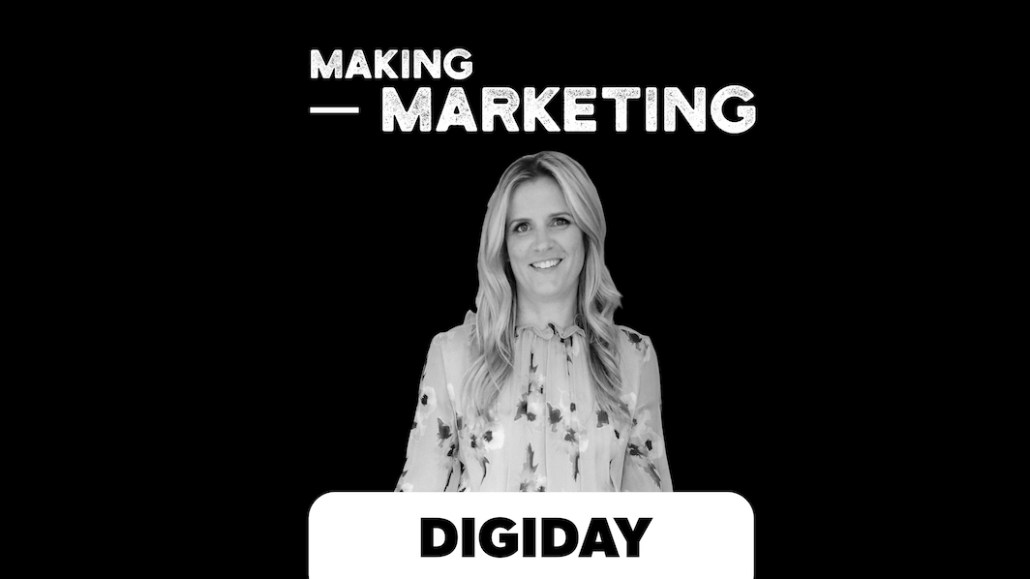Secure your place at the Digiday Publishing Summit in Vail, March 23-25
The Laundress co-founder Lindsey Boyd: Retaining customers is more important than acquiring new ones

Subscribe: iTunes | Google Play | Stitcher | RSS | Anchor
You’d be hard pressed to find a more beautifully packaged product than The Laundress’s detergents. The company, which was acquired by Unilever in January for a reported $100 million, started off as a special-care laundry brand, and now makes a line of detergents and cleaning products.
“We’ve had, since early on, women and men contact us about how we’ve saved their christening gown that’s been in their family, or we saved a quilt of their grandmother’s,” said Lindsey Boyd, co-founder of The Laundress, on this week’s episode of Making Marketing.
Lindsey joined Shareen Pathak on this week’s episode of Making Marketing to discuss how to balance a brand’s growth ambitions with reality, why retention is more important than acquisition, and what it means to be direct to consumer.
Going back to basics
“For us it was important that we had something for our cashmere, had something for silk. Because we knew you could wash these fibers that a lot of manufacturers in the fashion world were saying “dry clean, dry clean.” So our approach was very different. We went back and learned all about what happens when cashmere interacts with bleach, what happens with cotton fibers, and started to understand what we really needed: plant-based ingredients, high concentration, less water, we didn’t need any colorants… so we went against every traditional rule that was in the market at the time.”
You can only grow from what you keep
“It’s really important to have a balance, to keep existing customers engaged. This isn’t ground-breaking information, but it’s very, very important. A lot of people go after new customers, new customers, new customers, and they’re losing the original customers because the brand is changing, or it’s looking too big box.”
Keeping prices stable, whoever is carrying their products
“We’ve been on Amazon since the very beginning. So for us, pricing was very key. We didn’t want to undercut ourselves. Whatever we had on our website, wee were very adamant. We watched a lot of our wholesalers, and it’s tough, because you can’t tell them what to price the products at. But we support our wholesale clients and Amazon through marketing dollars and through promotional pieces such as sampling and trainings. With that support and relationship, we’ve been able to keep our prices really stabilized, over the years.”
More in Marketing

WTF is Meta’s Manus tool?
Meta added a new agentic AI tool to its Ads Manager in February. Buyers have been cautiously probing its potential use cases.

Agencies grapple with economics of a new marketing currency: the AI token
Token costs pose questions for under-pressure agency pricing models. Are they a line item, a cost center — or an opportunity?

From Boll & Branch to Bogg, brands battle a surge of AI-driven return fraud
Retailers say fraudsters are increasingly using AI tools to generate fake damage photos, receipts and documentation to claim refunds.








